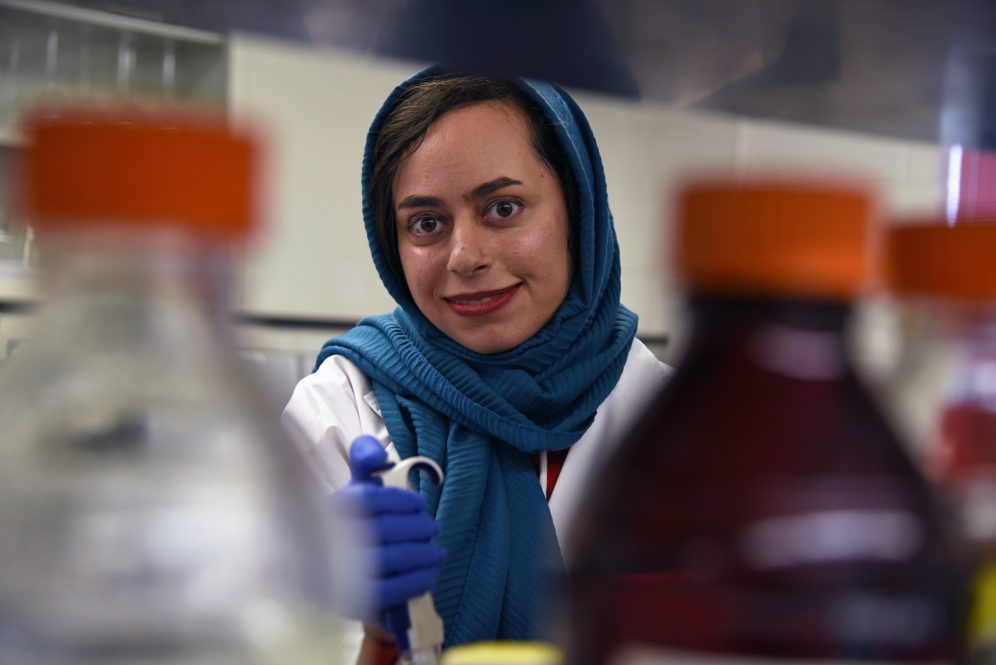Many personal risk factors for chronic disease — like genetics, age, and environment — can’t be controlled. But educating people to make healthier nutritional choices can make a big impact on their overall health and their propensity to develop chronic illness, like cardiovascular diseases, diabetes and cancer.
Nutritional epidemiology is the field of research that examines the link between diet and disease. Manije Darooghegi Mofrad, a Ph.D. student in nutritional sciences, is devoted to it.
A first-year doctoral student, Darooghegi Mofrad has already published 28 articles, including 15 that featured her as the first author, in top nutritional science journals. She comes to Storrs from the Tehran University of Medical Sciences, where she completed her master’s degree in nutritional sciences and was selected as a top researcher at the Ministry of Health, Treatment, and Medical Education in Iran. Her thesis explored the link between food quality index and psychological health among women in the south of Tehran.
At UConn, she is working in the lab of Ock K. Chun, who also researches nutritional epidemiology.
“I had an amazing talk with Dr. Chun, and I was really interested to work with her,” Darooghegi Mofrad says of her Ph.D. program selection process. “After that, I received an offer letter and a fellowship, and the offer letter was exceptional in terms of salary and research. UConn is one of the best public universities in the U.S. —its nutrition program is ranked seventh in the country — and because of that I accepted my offer and came here.”
Darooghegi Mofrad received the prestigious Jorgensen Fellowship, which is awarded to the most promising students entering doctoral programs at UConn. Throughout her Ph.D., she looks forward to furthering her research in nutritional epidemiology using cohort studies and clinical trials. Cohort studies, like the United States’ National Health and Nutrition Examination Survey (NHANES, pronounced “enhance”), have large sample sizes and allow researchers to track diet-disease relationships over time at the population level. Data from NHANES has already been used for important national health interventions, like eliminating lead in gasoline and beverage cans. Darooghegi Mofrad hopes that her research will provide scaffolding for similar changes in the field of nutrition, especially those related to chronic disease risks.
“I want to master my skills and broaden my horizons in my field of study,” she says. “Thanks to Dr. Chun, I have the opportunity to work on high-quality longitudinal cohort studies and clinical trials.”
After completing her Ph.D. at UConn, Darooghegi Mofrad hopes to continue her research, following in the footsteps of her mentors who introduced her to the public health potential of nutritional epidemiology.
For now, she’s content to take in the sights of Storrs as she enjoys her first experience studying in the U.S. Though she arrived in New England in the late summer, she says she has had a “wonderful time” already.
“UConn has a beautiful, spectacular landscape, and I like its tranquility,” she says.



